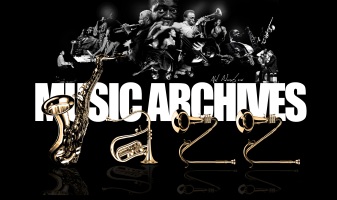
 |
Swing Time: Joshua Redman |
Post Reply 
|
| Author | |
snobb 
Forum Admin Group 

Site Admin Joined: 22 Dec 2010 Location: Vilnius Status: Offline Points: 28494 |
 Post Options Post Options
 Thanks(0) Thanks(0)
 Quote Quote  Reply Reply
 Topic: Swing Time: Joshua Redman Topic: Swing Time: Joshua RedmanPosted: 19 Jan 2024 at 2:26pm |
Swing Time: Joshua RedmanJeff Tamarkin on January 19, 2024 Joshua Redman wasn’t always planning to make an album of songs focusing on various American cities and regions but, one day, the acclaimed veteran jazz saxophonist discovered that his in-progress debut for Blue Note Records, where are we, was becoming just that. The 54-year-old musician, speaking from his home in California, says that he had assembled an all-star lineup for the sessions but they were having difficulty settling on repertoire. “We were not in a position to write new material, and I felt like we needed something to help narrow down the options,” Redman says, noting that several songs inspired by geographical locations around the country seemed to find their way into the mix. His thoughts then shift to his band—pianist Aaron Parks, bassist Joe Sanders, drummer Brian Blade and a young, relative newcomer on vocals, Gabrielle Cavassa—and he adds, “We didn’t know each other well. We had never played together before. I recognized from the beginning that this was a rather formulaic, borderline-cliché concept, places in the United States. It’s actually somewhat sterile, and obviously, it’s been done before. But that’s how it started. Then I became aware that if we were going to do a record that refers to places in the United States, it was important to capture different experiences and perspectives about the country.” The final track list they came up with, mainly ballads, accomplishes that goal. It’s a well-rounded mix of material, including the Louis Armstrong/ Billie Holiday jazz classic “Do You Know What It Means to Miss New Orleans?” and Count Basie and Jimmy Rushing’s “Chicago Blues” (which also borrows from singer/ songwriter Sufjan Stevens’ “Chicago”), as well as the Great American Songbook standard “Manhattan” and a pairing of John Coltrane’s “Alabama” and the 1930s standard “Stars Fell on Alabama.” Two tunes from the rock and pop world, Jimmy Webb’s “By the Time I Get to Phoenix” and Bruce Springsteen’s “Streets of Philadelphia,” also made the cut, along with a few other covers and a Redman original, “After Minneapolis (face toward morning),” which leads off the album. That song, which began as an instrumental inspired by the murder of George Floyd, marks Redman’s first time writing lyrics and the album is also his first to feature vocals. Redman couldn’t have chosen a better singer to bring these tunes to life. He discovered Cavassa after his manager heard her performing at a party. “I was blown away,” he says about his introduction to the vocalist. “There’s something about the quality of her expression and the texture. She’s got a really unique and also intimate, almost vulnerable, way of drawing you in as a listener.” He brought her in on the project, even name-checking her on the album cover. With the concept and personnel in place—the album also features a few guests, including guitarist Kurt Rosenwinkel—Redman and his collaborators started finalizing the song list and arranging the music. The album ultimately took on a life of its own and new meaning. “It was important to try to touch on a range of ideas and experiences,” Redman says. “It wasn’t until we started sequencing the record and thinking about how it would all come together that I realized the concept had a bit more juice than I thought.” Once the recording was finished, the quintet played a handful of dates, embellishing the music from the album and adding a couple of tunes that weren’t on it, including a wild jump number, “Boston Drivers,” and an arrangement of the Eagles’ “Hotel California” that is simply unlike any that’s come before. The latter stunned an audience at New York City’s 92nd Street Y in September. where are we—its title all lowercase, no question mark— marks Redman’s 16th release as a leader, since his career really kicked into gear in the early ‘90s, when he won the Thelonious Monk International Jazz Saxophone Competition. But it isn’t an exaggeration to say that music has always been in his blood. Born in Berkeley, Calif., he was raised there by his dancer/librarian mother, Renee Shedroff, who contributed heavily to his artistic development. “She always took me to performances from a very early age—Indian music concerts, Indonesian music, African dance, Kabuki theater, classical, jazz,” Redman says. “The first time she took me to [San Francisco’s] Keystone Korner was to see [multi-instrumentalist] Rahsaan Roland Kirk. And she always had my father’s records around the house.” The influence of Joshua’s father, the late Dewey Redman, cannot be discounted. He was a major jazz saxophonist in his own right, well known for his work with Ornette Coleman, Keith Jarrett and others, and as a member of the heralded ‘70s/‘80s group Old and New Dreams. Joshua didn’t grow up with his dad but, he says, “I can’t remember a time when I wasn’t listening to his music.” Once the younger Redman turned professional, he played in his father’s band. Dewey often passed along wisdom to his son, which was put to good use from the time Joshua recorded his self-titled debut album in 1993. As of this interview, he’s received 11 Grammy nominations throughout his storied career. “[My father’s] sound had so much power and authority, but also so much tenderness and poignancy. It had weight and depth and warmth and humanity,” Redman says, before paraphrasing. “He used to preach, ‘This is your voice. It doesn’t matter what you have to say if you don’t have a true voice to say it with.’ He and his music have been a gateway for me to access a part of my heritage, but also a part of the American heritage.” from https://relix.com Edited by snobb - 19 Jan 2024 at 2:27pm |
|
 |
|
Post Reply 
|
|
|
Tweet
|
| Forum Jump | Forum Permissions  You cannot post new topics in this forum You cannot reply to topics in this forum You cannot delete your posts in this forum You cannot edit your posts in this forum You cannot create polls in this forum You cannot vote in polls in this forum |